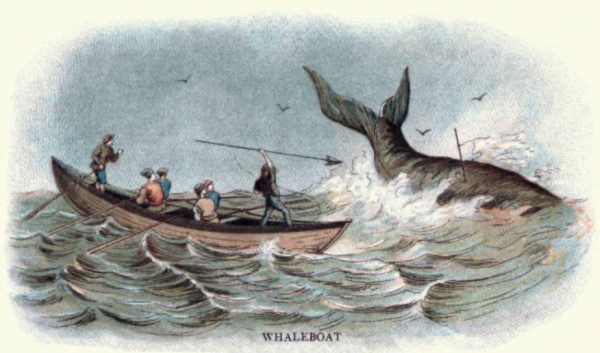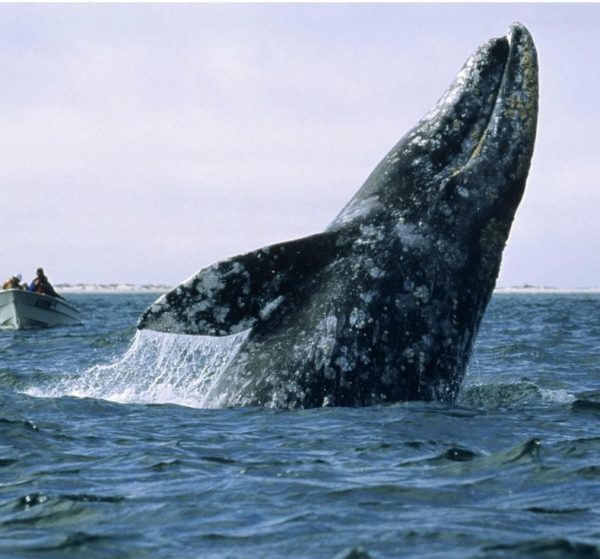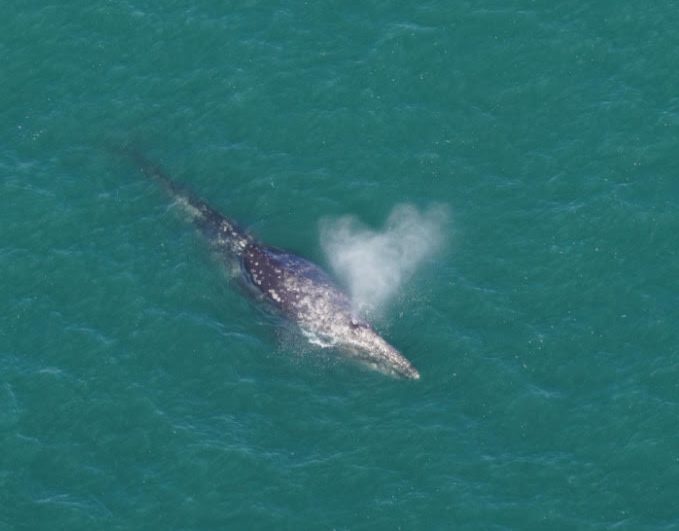Scientists from the New England Aquarium in an ”incredibly rare event” spot a Gray whale, which has been extinct in the Atlantic For over 200 years.
The Significance of The Sighting
30 miles south from Nantucket, Scientists flying above the water could not believe their eyes as for 45 minutes they witnessed a Gray whale diving and resurfacing. However it is surely 45 minutes none of these scientists will ever forget.
Associate research scientist of the New England Aquarium, Orla O’Brien stated “I didn’t want to say it out loud what it was, because it seemed crazy”. However, O’Brien and other scientists viewing the creature were not crazy and indeed were seeing a Gray whale.
Gray whales are no longer native to the Atlantic Ocean, and are easily identifiable thanks to their lack of dorsal fins, ridges on their dorsal humps, and unique white blotchy spots found all over their skin. Their current range only inhabits the North Pacific Ocean, and they prefer shallow coastal waters.
Only 5 sightings of this species have been confirmed over the past 15 years across the Atlantic and Mediterranean. According to the New England Aquarium this whale is likely the same one found late last year in Florida.
Extinction In The Atlantic
Like ma ny other whale species, whaling decimated Gray whale populations in both oceans. The industry was strong in not only the United States but also worldwide, until a moratorium brought the practice to end in 1986 with exception to a handful of countries including Norway, Iceland, and Japan.
ny other whale species, whaling decimated Gray whale populations in both oceans. The industry was strong in not only the United States but also worldwide, until a moratorium brought the practice to end in 1986 with exception to a handful of countries including Norway, Iceland, and Japan.
The United States banned the practice early in 1971, but It did not save the Atlantic Gray Whale which went extinct. However, it was the only species to become extinct from the practice, but many other species were brought on the edge of extinction and are still a fraction of their populations pre-whaling populations
The Gray whale population plummeted from an estimated 76,000-118,000 to 19,000 individuals. Blue, Sperm, Humpback and North Atlantic Right whales were also commonly hunted and devastated species.
Whaling was a practice adopted for the sheer amount of meat that could be taken from one whale alone. The meat, blubber, and organs from these massive and majestic mammals were utilized as a major source of food for many coastal communities. The oil from boiled whale blubber was also valuable at the time, being the ideal and favored fuel source for oil lamps for its clean burn, as well as commercial use as a lubricant in machines.
Whale baleen was also utilized especially in high fashion for corsets, but other uses included umbrella ribs, hat brims, and buggy whips.
What This Sighting Means For Our Climate
The species is typically found in the Northern Pacific. But likely as a cause of melting sea ice within the Northwest Passage, which connects the Pacific and Atlantic Oceans in the Arctic, certain individuals likely found their way through to the Atlantic Ocean.
This is cause for concern, as for the past 200 years Gray whales have been extinct in the Atlantic, sea ice has prevented their migration back into the Atlantic Ocean, which means the Arctic is not as cold as it should be.
The decline in sea ice from human-created climate change is not slowing down any time soon; which paints a dark picture for the many species who call the Arctic their home.


